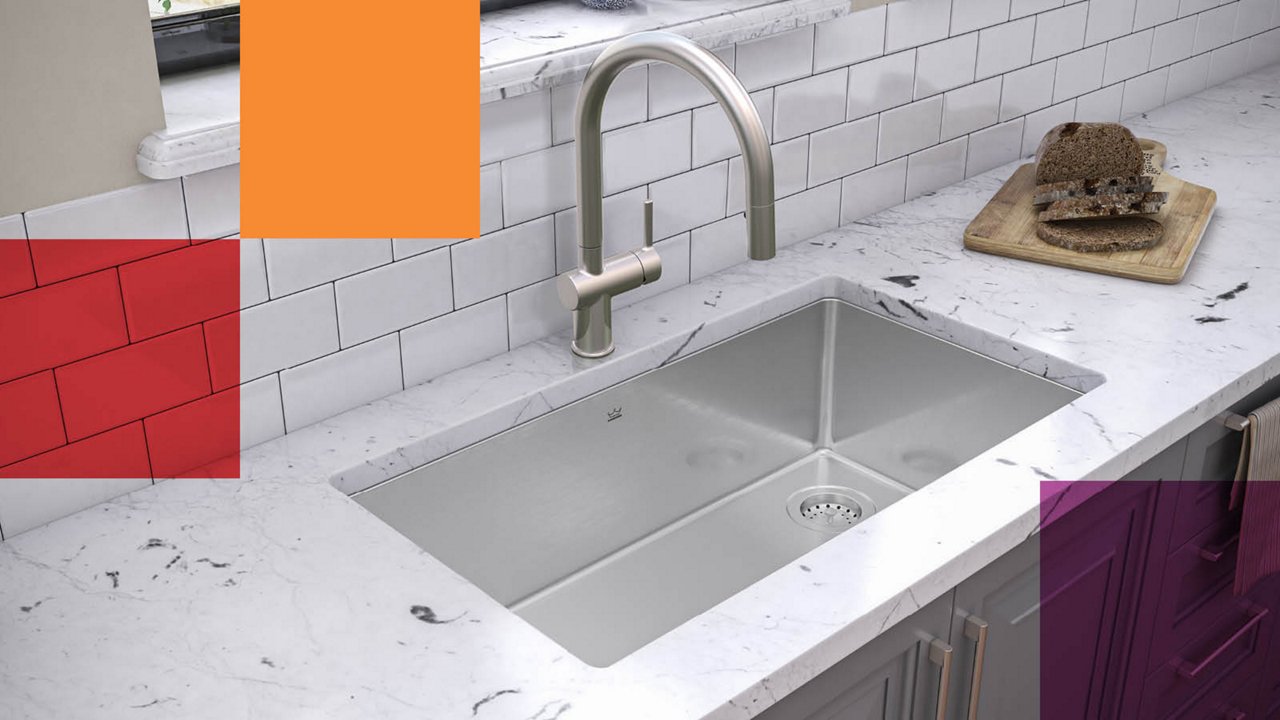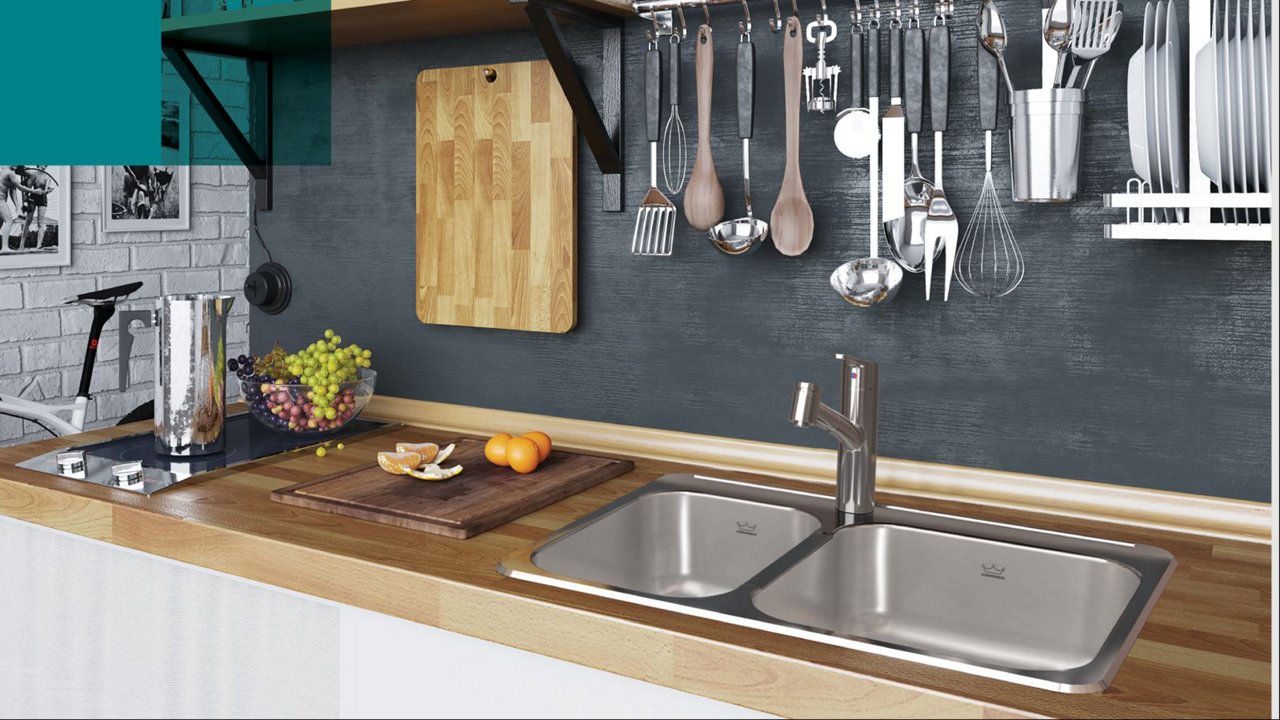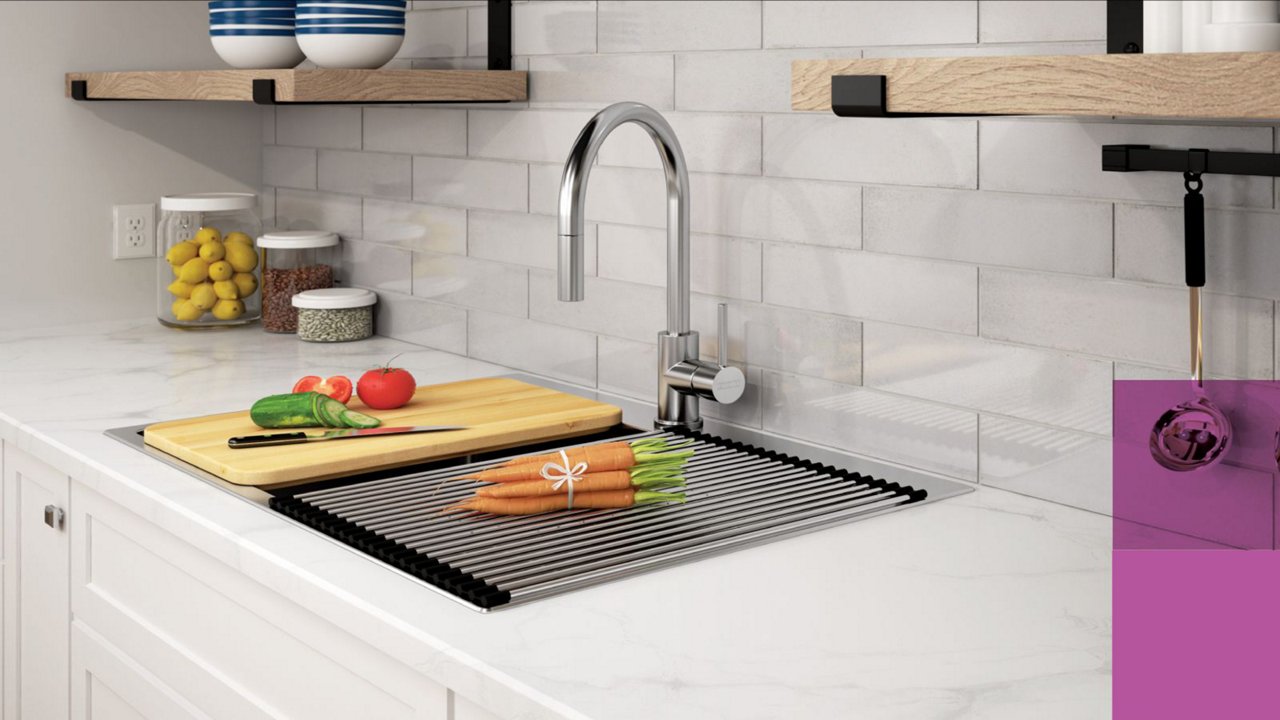REGULAR MAINTENANCE
Regular cleaning is important to maintain the appearance of your Kindred sink. Wipe with a soft, soapy cloth, rinse and dry after every use. Drying is very important to eliminate any film build-up that may develop from hard water deposits. Discover more top cleaning tips below.
Caring For Your Stainless Steel Sink
Scratches
Scratches on stainless steel surfaces aren’t always bad. In fact, over time, lots of minor scratches can add an attractive matte look to your products. However, if you have a deep scratch, you can blend it using the “fine” 3M Scotch Brite® pad and a liquid detergent Peek® or Flitz with a soft cloth. Always wipe with the grain, rinse thoroughly, and dry when finished.
Stubborn stains and rust
Rust stains result from iron particles from an outside source (i.e., water, cookware, etc.) and can be removed with cleaners such as Cameo. Please do not use steel wool pads as they leave tiny particles that will develop into rust spots. Stainless steel is, by itself, metallurgically incapable of rusting. Persistent stains, including rust, can be removed with various mild, non-abrasive stainless steel cleaners such as Flitz, Peek, Cameo, and others. Always rinse thoroughly after using any cleaner.
What To Avoid
- Steel wool pads. They will leave a residue of small iron particles that will lead to rusting and corrosion of the sink. Use ScotchBrite scouring pads instead.
- Bleaches containing hypochlorite. These will attack stainless steel and cause pitting and staining.
- Drain cleaning products containing sulphuric or hydrochloric and Silver dip cleaners which can attach to the stainless steel and leave a permanent stain.
- Leaving foods like citrus fruit juice, salt, vinegar, mustard, pickles, and mayonnaise on your surface for prolonged periods. These foods can cause pitting and corrosion.
- Strong acids can damage stainless steel (i.e., photographic developing liquids or denture cleanser). If they come in contact with the sink, they should be washed away immediately with clean water.
- Leaving rubber dish mats, wet sponges, or cleaning pads in the sink overnight. They will trap water which could lead to staining and discoloration of the sink.
Caring For Your Granite Sink
Stubborn stains
For stubborn stains on granite, we recommend using any of these products: Soft Scrub®, Bar Keepers Friend®, dishwasher soap, white vinegar (best for limescale), or mild bleach solution. We recommend using oxalic acid cleaning agents for rust stains (e.g., Bar Keepers Friend®). And always make sure you thoroughly rinse away any cleaning agents once you’ve finished..
Marks or Scratches
Your granite sink is made from tough-wearing material. If metal pots, pans, or cutlery are dragged across the surface, it will initially leave marks on the surface. These marks are metal deposits and can easily be removed by scrubbing them away with an abrasive pad and kitchen sink cleaner.
What To Avoid
- Strong alkalis like ammonia and caustic soda solution
- Contact with concentrated bleaches or products containing chlorinated solvents (paint strippers) or formic acid products (drain cleaner or kettle descaler). They may cause discoloration.
- Drain unblocking chemicals that involve filling the sink with water should not be used.
- Leaving rubber dish mats, wet sponges, or cleaning pads in the sink overnight as they will trap water which could lead to staining and discoloration of the sink.




